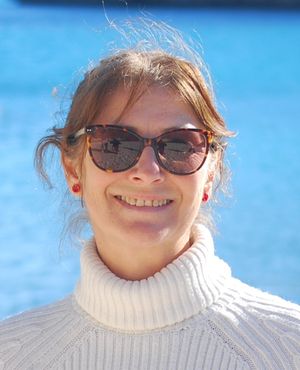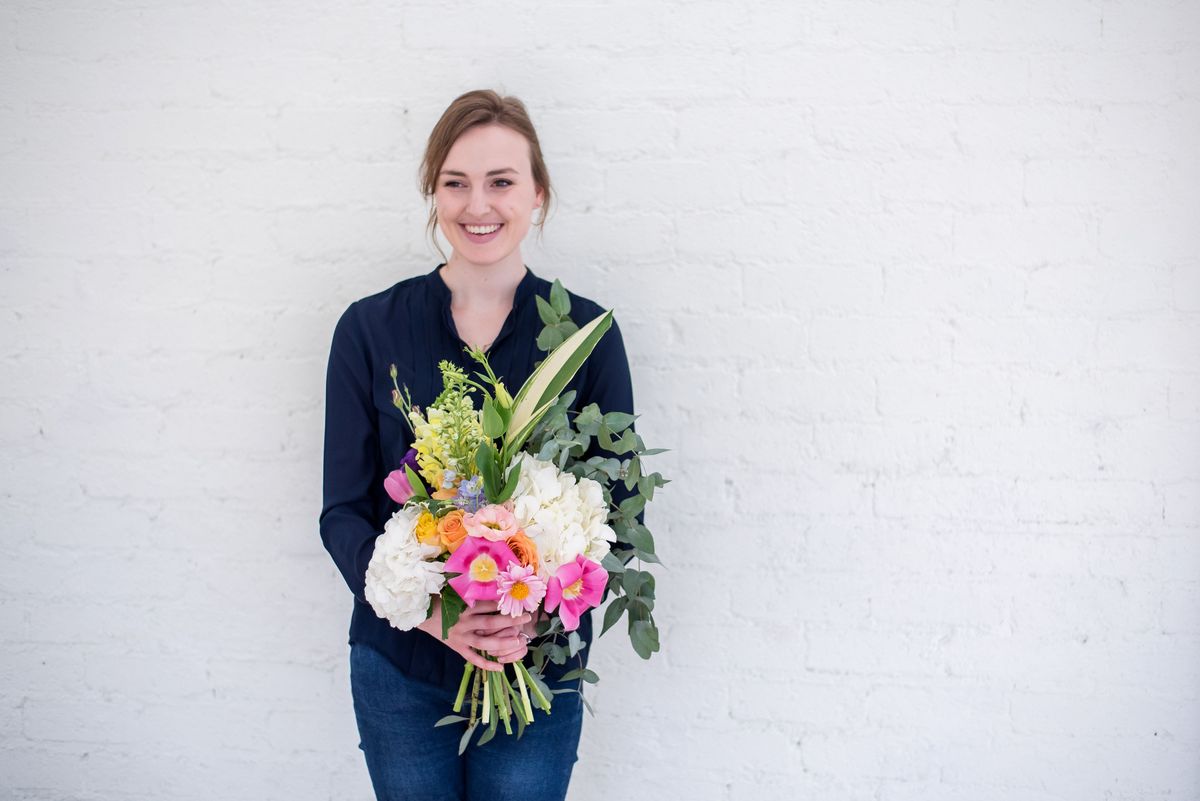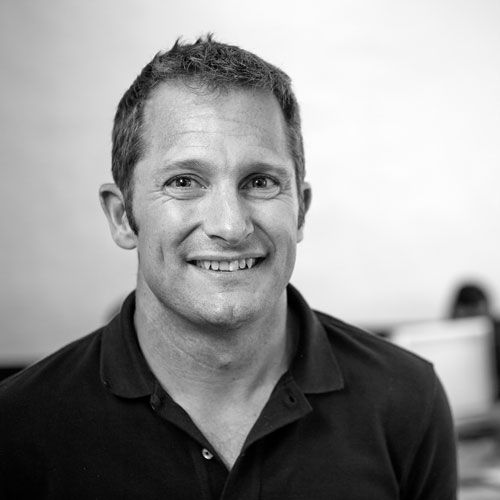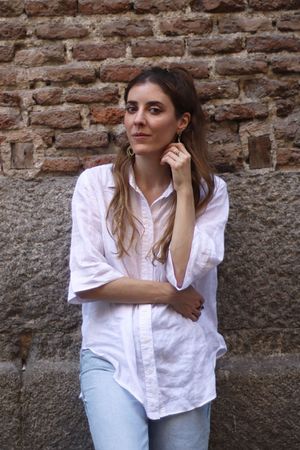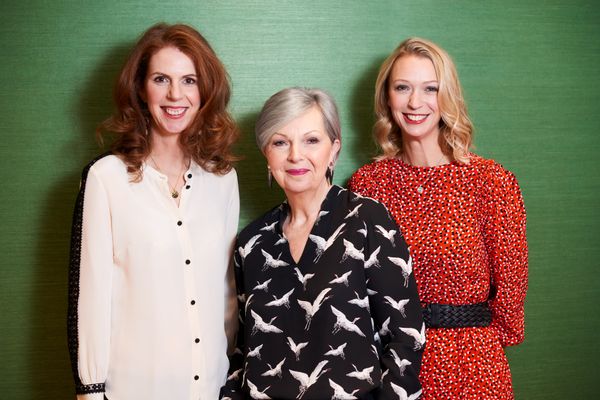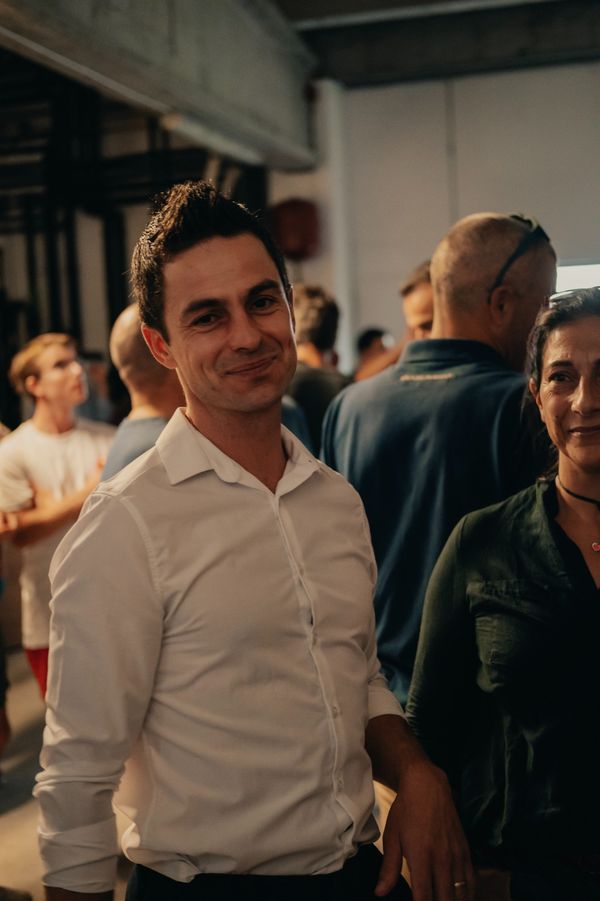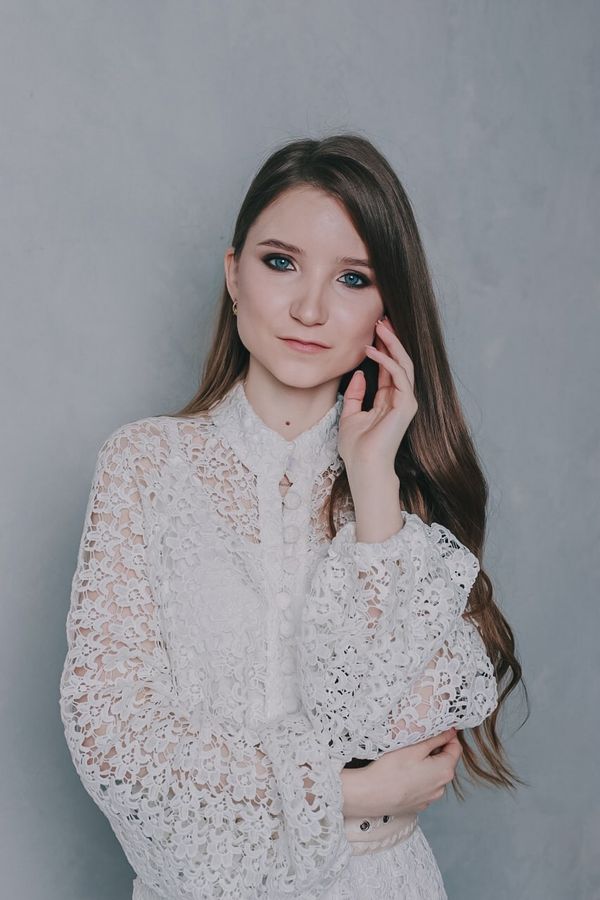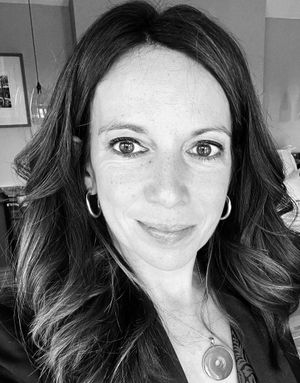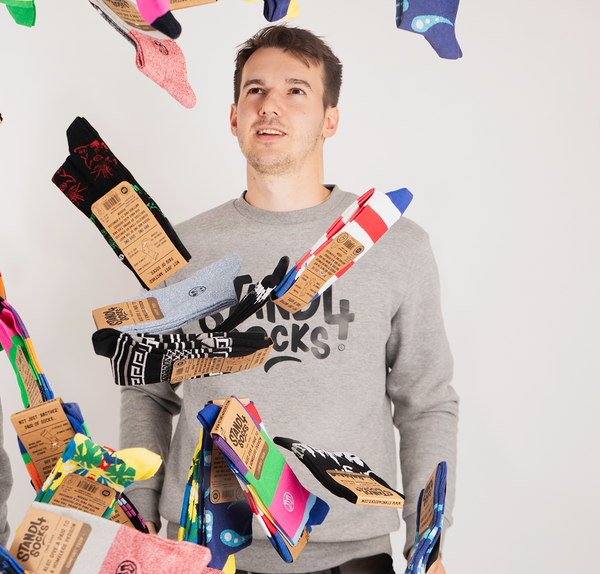London, England
A passion for making a difference to the most vulnerable people in society prompted British entrepreneur Jess Visser, 29, to set up Strength & Stem four years ago. "When volunteering for various charities, I became more aware of the prevalence of human trafficking and modern slavery in the UK — and I was outraged.
"Women and girls make up the vast majority of trafficked people, and the experiences they go through are unthinkable — it is so unjust, so heart-wrenching."
Jess was determined to do something to empower these women and change their lives.
At the time, she was a head-hunter, finding CEOs and trustees for charities and social enterprises — businesses that use their profits to support a cause. "This gave me a unique look under the hood of such organisations, showing me how they worked. And social enterprises seemed to be a perfect model — generating a sustainable income that could be used to assist disadvantaged people."
But what would be the ideal business to support the training and empowerment of trafficked women? "I was thinking and dreaming of what this could be, and suddenly — as I'd always had an interest in flowers — floristry came to mind," says Jess.
The power of flowers
In-depth research revealed that training in floristry could bring these women real employment opportunities. "I discovered that you don't need high-level formal qualifications to be successful in floristry, so there's no high barrier to entry. It's also a flexible industry with lots of freelance work."
But that wasn't all. "There's a quote from Lady Bird Johnson, wife of former US President Lyndon B. Johnson — 'Where flowers bloom, so does hope,'" says Jess. "And now studies show that flowers — which are beautiful to look at and give us joy when we receive them — boost wellbeing. Plus, doing something creative, something physical with your hands, is hugely beneficial for people living with trauma."
Jess took a short course in floristry, explored how training might work, and tested her ideas on friends and family. All the feedback was positive, suggesting her vision was viable.
"I came up with an idea for a pilot — a four-week floristry training program for survivors of human trafficking — and started crowdfunding to pay for it."
Jess used crowdfunder.co.uk, a leading UK crowdfunding platform. "I worked hard to ensure the crowdfunding page had good videography and so on, and two weeks before the crowdfunder launched, I did a fundraising event — a flower-crown-making workshop — in central London. I sold tickets and advertised through the local community and social media. Around 40 people attended."
Finally, launch day dawned. "I was very nervous, but I thought all I could do was give it my best shot!" says Jess.
She followed crowdfunder.co.uk's advice. "They said to ask 10 people I knew and trusted who were willing to support my cause to donate on the first day to get the momentum going. Then I pushed the campaign on social media and used any other networks I had."
The campaign, which ran for 28 days, spread Jess's idea far and wide. "It was so rewarding and humbling to have so many people suddenly supporting Strength & Stem: people I'd connected with on a youth camp when I was 15, former teachers, people I didn't even know."
Jess's crowdfunding raised over £10,000 ($12,500). Another shorter campaign brought the total to about £15,000 ($18,750). "I was thrilled! That was enough not only for the pilot but also to kickstart the business's founding of the charity arm. It was really encouraging to think that it wasn't just a nice idea in theory but that other people really bought into the vision."
Calling on the experts
However, with just a short floristry course under her belt, Jess knew she needed to recruit some professionals to run the pilot program. "I turned to Wolves Lane Flower Company, a sustainable florist and flower farm, which had kindly shared my crowdfunding campaign with their network."
Plus, she needed survivors to take part. "I already knew a staff member at Hestia, a charity that works with victims of modern slavery, so I wrote a proposal for them."
Hestia referred 10 women, and the program ran for four weeks in the fall of 2019. Afterwards, Jess gathered detailed feedback from participants. A key finding was that women wanted not just training in floristry but also practical skills that would enable them to work and integrate into the UK.
Then, all of a sudden, Covid put everything on hold. "It was really disheartening and also created a time of great uncertainty for me, as I was afraid we'd totally lose the momentum from the pilot," she says.
But, in March 2022, an updated program finally welcomed 10 new women. "It was six months long and started with eight weekly training sessions — four in floristry and four in supplementary skills."
The floristry sessions taught flower sourcing, flower conditioning, arrangements such as bouquets and table displays, and even group installation work — the core skills a florist needs.
Other sessions aimed to develop skills around employment (from financial management to accessing work in the UK) and promote mental wellbeing (independence, confidence, connection).
Then participants undertook two weeks' work experience with a large established floristry business, which has a retail shop and also creates floral displays for big events. And each was assigned a mentor for four months. "We give training to all our volunteer mentors, who are professionals from various industries," says Jess. "It's amazing that we have such a wonderful pool of volunteers to depend on — I am so grateful to them. Seeing a bond grow between a successful professional woman and a woman just finding her feet in the UK, seeing that mutual respect, is very moving."
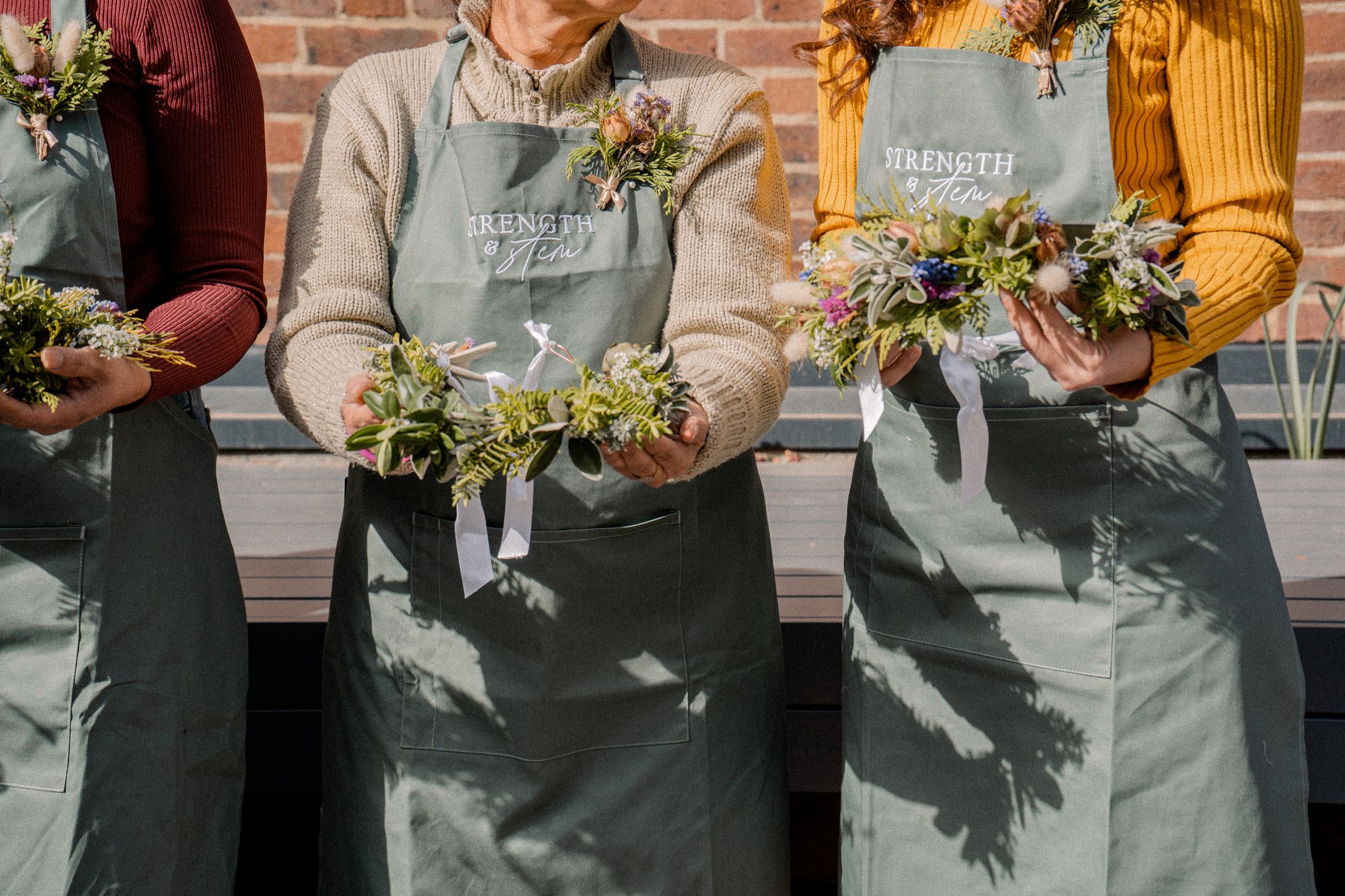
Mixing business with charity
That first full program finished in July 2022 — the same month that the business side of Strength & Stem was launched using grant funding. "Although we operate under the umbrella of Strength & Stem, we've got two entities — the charity arm and the business arm," explains Jess.
The goal that drives Jess is for Strength & Stem to become fully sustainable, with a floristry business supporting the charity that delivers the training program. "Our floristry business provides contract flowers for corporates, hotels, and event spaces, plus we run workshops for everything from bachelorette parties to team-building days."
And crucially, on top of generating income, the business aims to employ survivors who have completed the training program. Currently, freelance florists fulfil the income-generating work — including a pop-up flower stall on Valentine's Day at the London office of investment bank Goldman Sachs. "But survivors gained work experience doing the preparation and helping on the stall on the day. It was really good fun and such a great experience," says Jess. "We're definitely moving closer to our aim of offering employment."
For the moment, the charity — registered in 2019 after the pilot — is supported via grant funding. "The charity is a bit more established than the business arm," explains Jess. "There's a board of five trustees, including a treasurer and a company secretary. And we have three part-time staff members. Our program director oversees the development of our programs, a program coordinator offers administrative support, and a new fundraising manager is in charge of raising money via grants, trusts, and foundations."
A second cohort of survivors finished their training in February. "Their feedback was that they wanted even more of what they were getting — it felt brilliant to know that our focus was right," says Jess. "So in April, we started a longer program, adding two more weeks of floristry training and two more weeks of skills training. And they'll have six months of mentorship and a longer period of work experience."
Some of the floristry training is now being delivered by Strength & Stem's freelancers, including a trafficking survivor. "Our success really boosted my confidence, which in turn helped me develop our own Strength & Stem content based on survivors' feedback."
Strength & Stem's program director or volunteers deliver the supplementary skills elements. "For example, Christians Against Poverty deliver a finance session, and a local business does one on finding work, writing a resume, and interview prep."
Time to grow
Now that Jess has taken on a fundraising manager, she's focused on developing the business arm, reaching out to corporates, and actively selling Strength & Stem's services. "I'm also developing our growth strategy so we can really bring to life our vision of sustainability, with the business both employing our survivors and funding the charity's work."
But, when she can, Jess still loves to see the sessions in action. "It's incredible to see friendships formed and the women starting to come out of their shell."
Jess has also inspired a sister business in South Africa. "It's a separate legal entity, but we're connected through vision and business model," she says. "Just after the pilot, I was volunteering for an anti-trafficking charity in South Africa and met Jane Smith. It was one of those brilliant moments of connection."
Jane went on to found Strength & Stem South Africa, which works with impoverished women and those at risk of gender-based violence. "We chat regularly, and Jane is also exploring how people working in healthcare might be trained in floristry to use with their patients, to tap into that therapeutic element."
Making a difference in people's lives by running a business matters a lot to Jess. "Charity has an important place in our world, but — rather than relying on others' generosity to donate — there's something empowering about setting up a well-governed business that will generate its own income and using those funds for precisely your vision. You're not beholden to anyone else. I find this really inspiring."
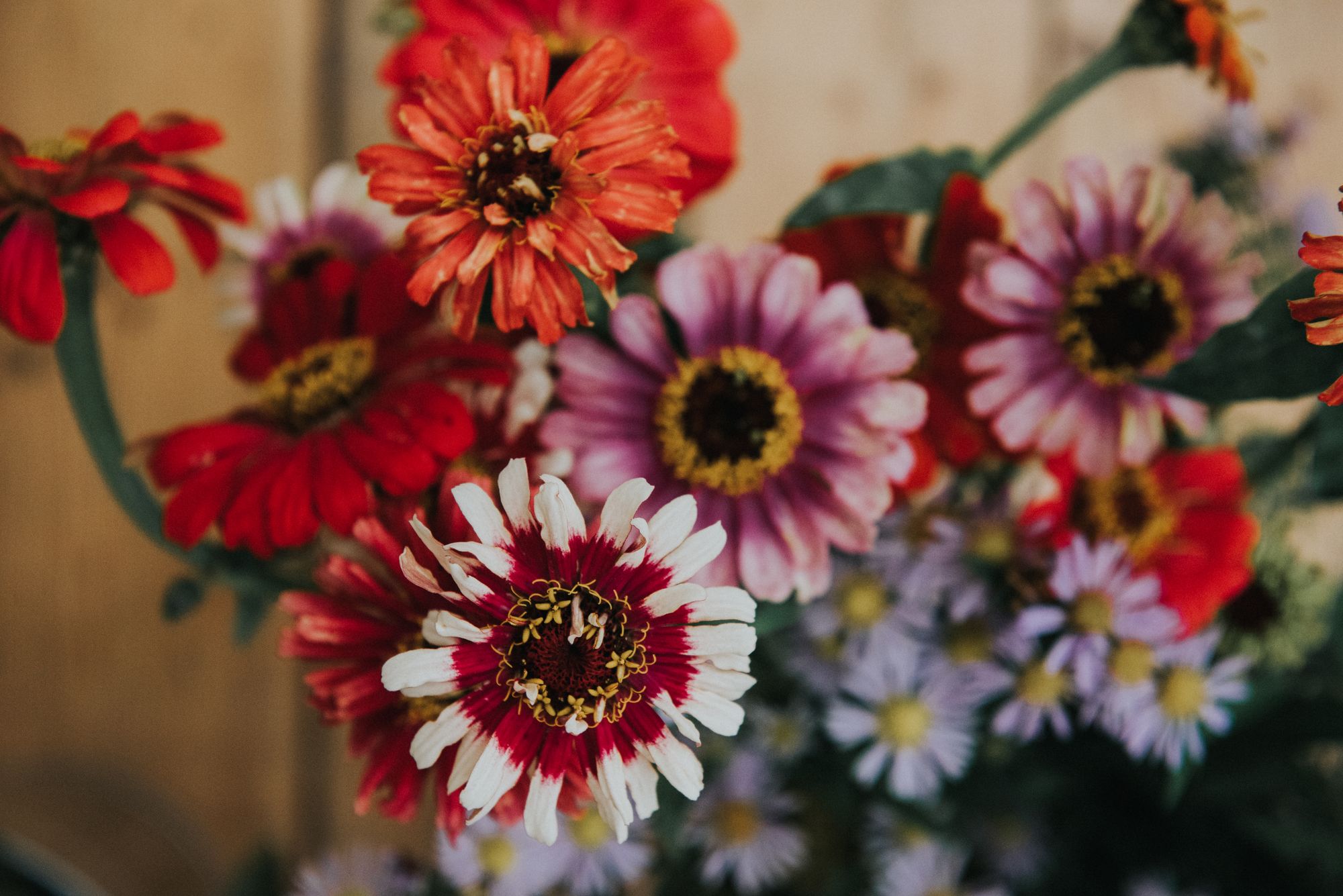
Finding a brighter future
So far, feedback shows that Jess's model truly is changing lives. "Each survivor on the program sets their own goals," she explains, "whether that's finding employment or simply increasing confidence or making friends."
Like their goals, survivors themselves vary greatly. "Some have had work experience already, some have degrees, some have no education at all, so the program has to support each woman's individual needs."
Post-program impact assessment — a crucial learning tool for Strength & Stem — shows participants talking about overcoming shyness, finding pride in themselves, and feeling empowered. They express how the program has changed their lives, not only by giving them concrete skills but by giving them motivation, self-reliance, confidence, happiness, and friendship.
One program graduate, Grace*, who was trafficked from Indonesia, started with few employability skills. Now she is passionate about floristry and, with a work visa granted, she is optimistic about her future — Grace's ambition is to have her own wedding event business. "When Grace shared her hopes and dreams and told us what a difference Strength & Stem had made to her, it made me even more determined to make the business successful," says Jess.
As well as expanding the offer to survivors and making Strength & Stem fully financially sustainable, Jess has another ambition. "I'd love to establish a physical space for us, such as a flower farm or a flower café, where the business is active, and we also have training rooms for our programs. I see it as a beautiful, safe space where survivors can work and learn and train but also be entrepreneurial. Other people will walk into that space and really understand that Strength & Stem is about transformation and hope, and a new future for the women we work with. The idea that I could make this happen makes me feel really excited and motivated to keep going."
*Name changed for anonymity
